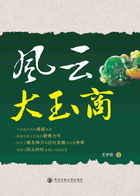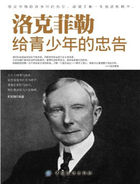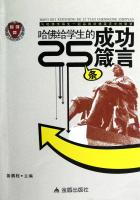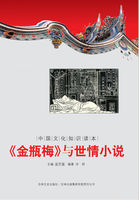The double Portion therefore that was Jus Primogeniturae, never took Place but in that Person that was the Primogenitus, of him from whom the inheritance immediately descended, or him that represented him; as if A. had two Sons, B. and C. and B. the eldest had two Sons, D. and E. and then B. died, whereas B. should have had a double Portion, viz. two Thirds in Case he had survived his Father; but now this double Portion shall be equally divided between D. and E. and D. shall not have two Thirds of the two Thirds that descended from A. to them. Vide Selden, ut supra.
Thus much of the Laws or Rules touching Descents among the Jews.
Among the Graecians, the Laws of Descents in some Sort resemble those of the Jews, and in some Things they differed.
Vide Petit's Leges Attica, Cap. I. Tit. 6. De Testamentis &Hereditario Jure, where the Text of their Law runs thus, viz.
Omnes legitimi Filii Haereditatem Paternam ex aequo inter se Haeriscunto, si quis intestatus moritur relictis Filiabus qui eas in Uxores ducunt haeredes sunto, si nullae supersint, hi ab intestato haereditatem cernunto: Et primo quidem Fratres defuncti Germani, & legitimi Fratrum Filii haereditatem simil adeunto; si nulli Fratres aut Fratrum Filii supersint, iis geniti eadem Lege haereditatem cernunto: Masculi autem iis geniti etiam si remotiori cognationis sint Gradu, praeferuntor, si nulli supersint, Paterni proximi, ad sobrinorum usque Filios, Materni defuncti propinqui simili Lege Haereditatem adeunto; si e neutra cognatione supersint intra definitum Gradum proximus cognatus Paternus, addito Notho Nothave; superstite Legitima Filia Nothus Haereditatem Patris ne adito.
This Law is very obscure, but the Sense thereof seems to be briefly this, viz. That all the Sons equally shall inherit to the Father; but if he have no Sons, then the Husbands of the Daughters; and if he have no Children, then his Brothers and their Children; and if none, than his next Kindred on the Part of his Father, preferring the Males before the Females; and if none of the Father's Line, ad Sobrinorum usque Filios, then to descend to the Mother's Line. Vide Petit's Gloss thereon.
Among the Romans it appears, that the Laws of Successions or Descents did successively vary, for the Laws of the Twelve Tables did exclude the Females from Inheriting, and had many other Streightnesses and Hardships which were successively remedied:
First, by the Emperor Claudius, and after him by Adrian, in his Senatus Consultus Tertullianus, and after him hy Justinian in his Third Institutes, Tit. De Haereditatibus quae ab intestato deseruntur, and the two ensuing Titles. And again, all this was further explained and settled by the Novel Constitutions of the said Justinian, stiled the Authenticae Novellae, cap. 18. De Haereditatibus ab intestato venientibus & agnatorum Jiure sublato. Therefore omitting the large Inquiry into the Successive Changes of the Roman Law in this particular, I shall only set down how, according to that Constitution, the Roman Law stands settled therein.
Descents or Successions from any Person are of Three Kinds, viz. 1st, In the Descending Line. 2dly, The Ascending Line. 3dly, The Collateral Line; and this latter is either in Agnatos a Parte Patris, or in Cognatos a Parte Matris.
1. ln the Descending Line, These Rules are by the Roman Law directed, viz.
1. The Descending Line, (whether Male or Female, whether immediate or remote) takes Place, and prevents the Descent or Succession Ascending or Collateral in infinitum.
2. The remote Descents of the Descending Line succeed in Stirpem, i.e. in that Right which his Parent should have had.
3. This Descent or Succession is equal in all the Daughters, all the Sons, and all the Sons and Daughters, without preferring the Male before the Female; so that if the common Ancestor had three Sons and three Daughters, each of them had a sixth Part;and if one of them had died in the Life of the Father, having three Sons and three Daughters, the sixth Part that belonged to that Party should have been divided equally between his or her six Children, and so in in finitum in the Descending Line.
2. In the Ascending Line, there are these two Rules, viz.
1. If the Son dies without Issue, or any descending from him, having a Father and a Mother living, both of them shall equally succeed to the Son, and prevent all others in the Collateral Line, except Brothers and Sisters, and if only a Father, or only a Mother, he or she shall succeed alone.
2. But if the Deceased leaves a Father and a Mother, with a Brother and a Sister, ex utrisque Parentibus conjuncti, they all Four shall equally succeed to the Son by equal Parts without Preference of the Males.
3. In the Collateral Line, (i.e. where the Person dies without Father or Mother, Son or Daughter, or any descending from them in the Right Line) the Rules are these, viz.
1. The Brothers and Sisters, ex utrisque Parentibius conjuncti, and the immediate Children of them, shall exceed equally without Preference of either Sex, and the Children from them shall succeed in stirpes; as if there be a Brother and Sister, and the Sister dies in the Life of the Descendant leaving one or more Children, all such Children shall succeed in the Moiety that should have come to their deceased Mother, had she survived.
2. But if there be no Brothers or Sisters, ex utrisque Parentibus conjuncti, nor any of their immediate Children, then the Brothers and Sisters of the half Blood and their immediate Children shall succeed in Stirpes to the Deceased, without any Prerogative to the Male.
3. But if there be no Brothers or Sisters of the wbole or half Blood, nor any of their immediate Children (for the Grandchildren are not provided for by the Law) then the next Kindred are called to the Inheritance.















